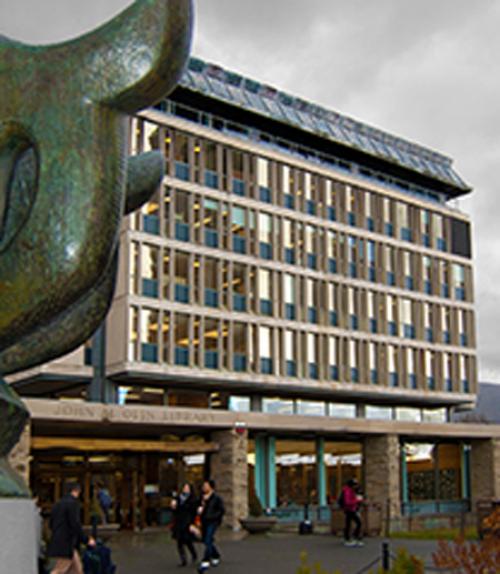With so much research and exploration being conducted online, having material available digitally is vitally important to faculty and students.
The Grants Program for Digital Collections in Arts and Sciences has enabled a wide range of Cornell collections to be digitized, from punk music fliers to biblical-era excavations. College of Arts and Sciences faculty and graduate students are invited to submit new proposals to digitize collections; the deadline for expressing initial interest is Feb. 17.
“New methods and digital tools are influencing the landscape of scholarship, and this program helps to enable innovative research in addition to expanding our digital primary material collections,” said Oya Rieger, associate university librarian and co-chair of the digital grants program.
“We particularly welcome projects that integrate new research methods, innovative data visualization and tools that enable novel ways of analysis and interpretation,” said co-chair Eric Rebillard, professor of classics and history.
More than 40 faculty members have participated in the grants program since its inception in 2010. Funded by the College of Arts and Sciences and coordinated by Cornell University Library, the program has funded 30 projects that support learning and research online.
Many of the projects funded through the grants program have been interdisciplinary cross-college initiatives, such as the digitizing of the Cornell Costume and Textile Collection by Judith Byfield, associate professor of history; Denise Nicole Green, assistant professor of fiber science and apparel design in the College of Human Ecology; and Jolene Rickard, associate professor of history of art and director of the American Indian and Indigenous Studies Program.
Some of the projects have also included collaborators from other institutions, such as the Historic Glacial Images of Alaska and Greenland project, led by Matt Pritchard, associate professor of earth and atmospheric sciences in the College of Engineering, and Aaron Sachs, professor of history, which included Julie Elliott from Purdue University.
Eligible collections may include those already held by the library or those belonging to individual faculty members. Materials held by other cultural institutions that will support teaching and research at Cornell – especially combining dispersed resources to create new and enriched ones – may also be eligible.
Full grant proposals are due March 17. Library staff can work with faculty members to prepare proposals and help with technical plans.
More information about the grants, applications and eligibility criteria can be found on this page.
This article originally appeared in the Cornell Chronicle.





